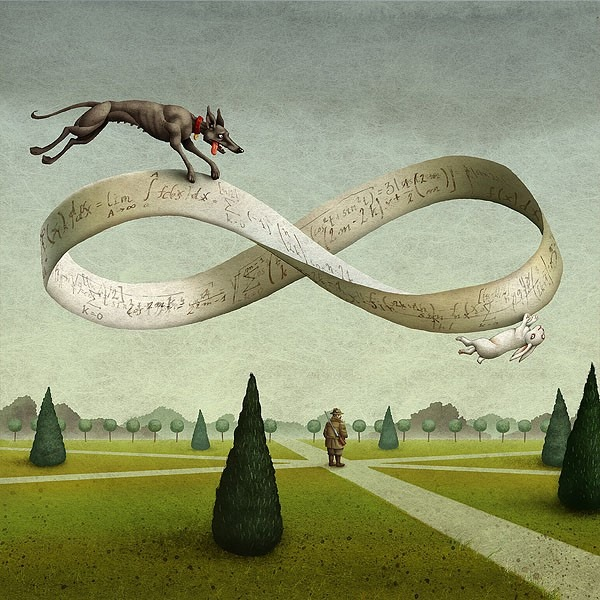Linkage
-
Columbia University mathematician Michael Thaddeus is dubious of the data Columbia used for its #2 ranking from US News & World Report (\(\mathbb{M}\), summary, via). Conclusion: the whole ranking system is irredeemably flawed and casts a pernicious influence on priorities (e.g. Columbia would be discouraged from keeping a Nobelist who happens not to have a Ph.D., because the ranking counts faculty with Ph.D.s but not Nobelists).
-
Ukrainian archivists rush to digitize and digitally export the information in their documents (\(\mathbb{M}\)), both in case the Russian invaders act to destroy unflattering material and as a precaution against more indiscriminate destruction: Their physical artworks and architecture are harder to protect, though: “In the midst of the unfolding human tragedy is the appalling cultural loss the war may wreak.”
-
I saw the scene below while returning from my final exam this morning (\(\mathbb{M}\)), the first in-person exam I’ve given in two years. Tomorrow we stop requiring masks indoors. Spring has sprung? On the other hand, I don’t have any hard data to support this, but my TAs think that the prevalence of suspected academic dishonesty is much higher than it was before we locked down, perhaps because the students have become used to doing homeworks and exams in an environment where it’s harder to detect.

-
Sudanese Möbius Band (\(\mathbb{M}\)). This is a minimal surface within a hypersphere, with a great circle as its boundary. It can then be stereographically projected into 3d Euclidean space, preserving the circular shape of the boundary. There was apparently a SIGGRAPH’84 video on it by Dan Asimov, one of its discoverers and namesakes (with Sue Goodman: Sue-Dan-ese), but it appears to exist only on old VHS tapes, so instead this more recent video by Charlie Gunn will have to make do.
-
Gil Kalai provides a micro-review of Imre Bárány’s new book Combinatorial Convexity (\(\mathbb{M}\)).
-
Russian government bans Russian-based scientists from participating in international conferences and discourages them from publishing in internationally-indexed journals (\(\mathbb{M}\)).
-
Two recent deaths (\(\mathbb{M}\)): Alexander Vardy, UCSD coding theorist, and Konstantin Olmezov, Ukrainian combinatorist, after being prevented from leaving Russia.
-
A little Möbius strip art by Adam Pękalski (\(\mathbb{M}\)).

-
Models of surfaces and abstract art in the early 20th century (\(\mathbb{M}\)), Angela Vierling-Claassen, Ponticulus Hungaricus. A brief survey how physical models of mathematical surfaces, made for teaching and research, came to be influential in modern art. This whole site looks like it would be interesting, if you read Hungarian. A Hungarian version of bridgesmathart.org, if you like (where the linked paper originally appeared). They have occasional other pieces in English, as well.
-
Simulating “tens of thousands of bubbles in foamy flows” (\(\mathbb{M}\), research article, via). The issue is that preventing spurious bubble coalescence by tracking the shapes of individual bubbles is slow and expensive. As far as I can tell the new solution involves a grid-based heuristic for coloring the graph of bubbles that are dangerously near each other, and tracking the shape of an entire color class at once.
-
SIAM spotlights the accomplishments of four women mathematicians for Women’s History Month (\(\mathbb{M}\)). They are mathematical systems biologist and drug developer Carolyn Cho, image reconstruction researcher Carola-Bibiane Schönlieb, fluid mechanics expert and numerical analyst María González Taboada, and computational flow software developer Carolyn Woodward.
-
Mathematical postage stamps (\(\mathbb{M}\)). The entry page is rather bare and not obvious in its navigation: use the “stamps” menu at the top of the page to find the actual content.
-
The rise of citational justice: how scholars are making references fairer (\(\mathbb{M}\), via). The title of this Nature article is not really accurate: it’s mostly about how scholars are making more efforts to discover how biased against disadvantaged groups their citation patterns are, not so much what to do about it. But knowledge is power.
-
Nice profile and interview of number theorist and musician Lillian Pierce (\(\mathbb{M}\), see also), in part on how those two interests tie together in unexpected ways.
-
Jack Dongarra has won the 2021 Turing Award (\(\mathbb{M}\), see also), for his “pioneering contributions to numerical algorithms and libraries that enabled high performance computational software to keep pace with exponential hardware improvements for over four decades”.
-
How changing your knowledge representation can lead to new insights in sudoku solving (\(\mathbb{M}\), via). In particular, the post describes a notion of equivalent sets (pairs of sets of sudoku cells that must contain the same values of each other), how to recognize sets as equivalent, and how to use the idea in puzzle solving and puzzle construction, that was all new to me.